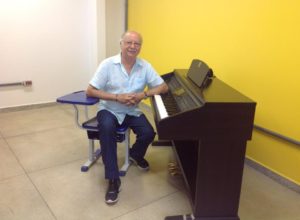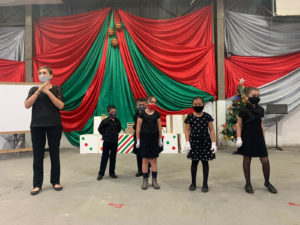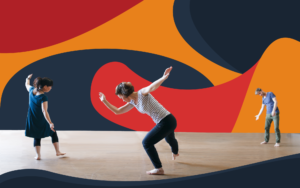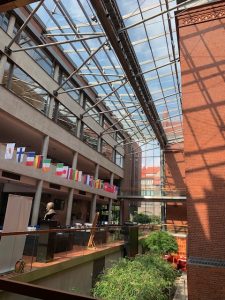“Dalcroze Connections”
A Brief History of Dalcroze Eurhythmics in Guatemala
Making Dalcroze eurhythmics visible in Guatemala is a task that invites researchers to perform deep analysis. It was not possible to confirm the presence of a music teacher in Guatemala who held official accreditation endorsed by the Institut Jaques-Dalcroze in Geneva. However, the impact of this music pedagogy in the development of local musical education…
Read MoreInterview with Iramar Eustachio Rodrigues, Brazil-Switzerland
“My Dalcroze eurhythmics teaching experience in my home country, Brazil, and other Latin American countries“By Elda Nelly Treviño (México) Iramar Eustachio Rodrigues (1944–), one of the most renowned and loved Latin American specialists in Dalcroze eurhythmics, was born in Brazil, became a nationalized Swiss citizen, and retired from the Institut Jaques-Dalcroze in Geneva after many…
Read MoreJaques-Dalcroze Rhythmic Solfège Courses: A Personal Experience at Costa Rica’s SINEM
Introduction Throughout my musical career, solfège (music reading and theory) has always been rather bittersweet—challenging yet fascinating. As I progressed from beginning solfège in grade school to counterpoint in college, I became frustrated with the fact that these classes were abstract, repetitive, and, ironically, not very musical. This propelled me to search for a more…
Read MoreFrom Charango to Kultrún: The Richness of Chilean Music
Mexico, my native country, is in the northern hemisphere, yet shares the same language with Chile, far away in the southern hemisphere. Although both countries are part of Latin America, they are so far apart that when one is in the middle of winter, the other enjoys a hot summer. A focus on traditional Chilean…
Read MoreLetter from the Editor
The second volume of the special edition of Dalcroze Connections dedicated to the practice of Dalcroze Eurhythmics in Latinamerica offers the DSA community a diversity of applications of the principles of Jaques-Dalcroze in different contexts. This issue makes me feel very proud because among the authors of its articles, we find former graduates of the…
Read MoreImprov Corner: Fourth Ree to One
This is a kind of two-for-one composition. In addition to the “disappearing division” rhythmic construction, there is an association at work here. Do you see it? Half notes are played as fourths, dotted quarters as thirds and quarters as seconds. The metric system may be interesting for the eurythmics classroom, but a little too restrictive…
Read MoreDalcroze Pedagogy: Motivating Repetition and Improving Movement
(adapted from Dittus’s Embodying Music) In each lesson, Dalcroze students will need to engage in a fair amount of repetition until they achieve mastery or automatization of the required skill. This takes time and energy for the student and requires the instructor’s watchful eye to ensure that the students are sufficiently challenged and engaged. Furthermore,…
Read MoreIrregular Measures and Unequal Beats in the Work of Dalcroze and Martin
I. Irregular Measures The rhythmic concept of irregular measures appears in Frank Martin’s 8 Préludes pour le piano. It is also a commonly used subject in Dalcroze education. The term “irregular measures” may be used interchangeably with the term “mixed meter,” and is defined here as metrical changes with a constant, unchanging beat. “Unequal beats”…
Read MoreBehind the Scenes of the Dalcroze Lab
Jeanette Wong in Conversation with Bill Bauer The first Dalcroze Lab was launched in January of 2021, led by Silvia Del Bianco, director of the Institut Jaques-Dalcroze in Geneva. The idea behind the Dalcroze Lab is to revisit workshop sessions taped at past DSA National Conferences, such as the one held in Miami in January…
Read MoreGeneva Notebook
In the fall semesters of both 2018 and 2019, I lived in Geneva to work toward the diplôme supérieur, which I earned in June of 2020. In this article, I’ll share my experiences and reflect upon a memorable period of my life. The IJD Geneva holds mythic status in the minds of many in the…
Read More








